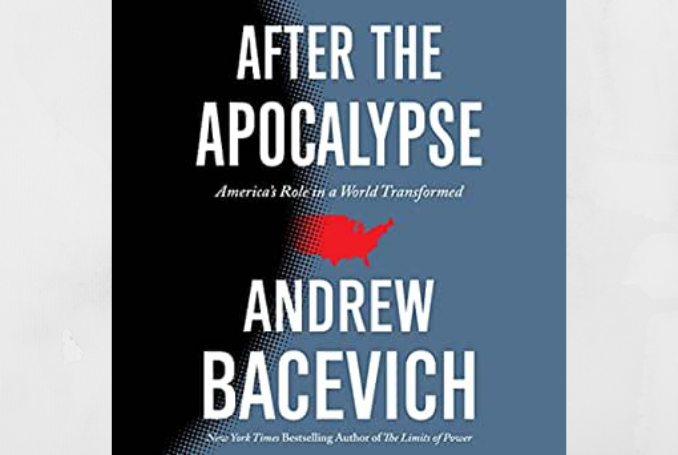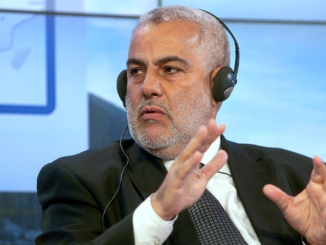
By Jim Miles
(After the Apocalypse – America’s Role in a World Transformed. Andrew Bacevich. Metropolitan Books, Henry Holt and Company. New York. 2021.)
The contemporary apocalypse as seen by Andrew Bacevich in his latest book, “After the Apocalypse”, consists of four different horsemen: first mentioned are the severe climate effects of global warming; Trump “toxic and divisive” presidency is mentioned next; followed by the Covid-19 pandemic and its subsequent economic effects; and finally, “a mass movement demanding a reckoning with the nation’s legacy of racism”.
“After the Apocalypse” is a short book, more of an extended essay. Bacevich’s goal is a view to revising “the premises informing America’s role in the world. Put simply, basic US policy must change.” He does so by identifying “the connecting tissue between the delusions of the recent past and the trauma that are their progeny.” This is achieved through examining the “manufactured memory” of different aspects of US geopolitics, bureaucracy, national security, and imperial mismanagement.
The main part of the book presents the many facets of this manufactured memory. The language used as descriptors leaves the reader with no doubt about Bacevich’s perspective. Without extensive quoting this vocabulary tells a lot about the tales: arrogance, ignorance, delusions, obsolescence, reckless irresponsibility, miscalculations, hapless, defective, self-inflicted and on. Most of that refers to the establishment and its policies and personnel. He is not quite so expansive on the population in general but his word choice in that sense is also quite summative: lethargy, indifference, apathy. He does recognize that much of the latter is because of most of the former.
Topics
In short, Bacevich recognizes most of the problems occurring with the decline of the empire and provides sufficient information and detail to support his ideas. His topics include Christianity, in particular in relation to the ‘homeland’ and China. He acknowledges the financial advantage of the petrodollar as the global reserve currency. Due to human depredations of the environment, “nature itself becomes the threat.” He looks at the rise of China much more so than Russia, with a caveat on the latter as his first of three basic tenets of imperial management: don’t invade Russia.
In a sub-section titled “Plenty of daylight,” Bacevich examines US policy with Israel. Along the way, he recognizes “This de facto policy of colonization hugely complicates prospects of the “two-state solution” which successive US administrations…consistently professed to support.” Financially he identifies the obligation that makes it “incumbent upon the American taxpayer to sustain Israeli military superiority in perpetuity.” In its relationship with Iran, Washington’s inflexibility obliges it “to take sides in disputes that are extraneous to core American interests.”
Unfortunately while examining the US essential interests, the Palestinians are not directly mentioned other than through the use of the terms ‘colonization’ and ‘two-state solution’.
Solutions
It is Bacevich’s conclusion that provides the most room for thought, as Bacevich, in spite of his strong sense of what is happening in the US and around the world, still retains some of his military perspectives (Colonel, US Army, retired; currently Professor Emeritus of International Relations and History at the Boston University Frederick S. Pardee School of Global Studies).
The Isreali ties are not mentioned directly other than within a “change in fiscal priorities. The share of discretionary spending allocated to the military-industrial complex will have to shrink considerably.”
His strongest recommendations, very direct, are to quit NATO, which in essence means the end of NATO as any kind of power. Further, he calls for the US to “liquidate” both Central Command (CENTCOM) and Africa Command (AFRICOM) and “once more classify terrorism as a criminal matter, falling under the purview of courts and law enforcement agencies” at all levels “rather than armies.”
Strangely enough, and this is where Bacevich’s residual militant thinking comes into play, is how he views China and its “provocations” that have “caused unease throughout the region.” He argues that “An abrupt change in the US military posture in the Indo-Pacific could trigger such a disaster [an actual shooting war]”. This is a rather backward logic, that maintaining the Indo-Pacific Command will help avoid actual conflict. His main argument that a US policy of “sustainable self-sufficiency will help to avert such a prospect” is given no definition.
1984
Militarism rises again as his final solution involves a “new North American Security Zone (NASZ)” creating a “common cause with Canadian and Mexican forces in maintaining the integrity of the NASZ perimeter.” Does this not describe Orwell’s 1984 vision of Oceania and Eurasia (the latter now including Orwell’s Eastasia)?
As a Canadian, recognizing that we are already a large part of US foreign policy, US culture, and US financial constructs, the last thing Canada needs is a stronger liaison with the U.S. We are already pretty much a de facto fifty-first state although we pretend otherwise – our economies are fully linked as are our militaries. Canada supports NATO, supports Israel in some aspects more strongly than the U.S., and supports other U.S. imperial interests across the world from Haiti, Venezuela, Cuba, over to Saudi Arabia, Russia, and China and on. We do not need 1984 realized.
Sum
Andrew Bacevich has written an important work examining the US empire. Unfortunately, he has not fully escaped from his inculturated need for military control of – something – in this case Canada and Mexico. “After the Apocalypse” summarizes enough of US history and current policies well enough to support his primary premise of deconstructing the “manufactured memory” in order to make progress domestically with less involvement in the world in its dominant military aspects.
– Jim Miles is a Canadian educator and a regular contributor/columnist of opinion pieces and book reviews to Palestine Chronicles. His interest in this topic stems originally from an environmental perspective, which encompasses the militarization and economic subjugation of the global community and its commodification by corporate governance and by the American government.

– Jim Miles is a Canadian educator and a regular contributor/columnist of opinion pieces and book reviews to Palestine Chronicles. His interest in this topic stems originally from an environmental perspective, which encompasses the militarization and economic subjugation of the global community and its commodification by corporate governance and by the American government.








